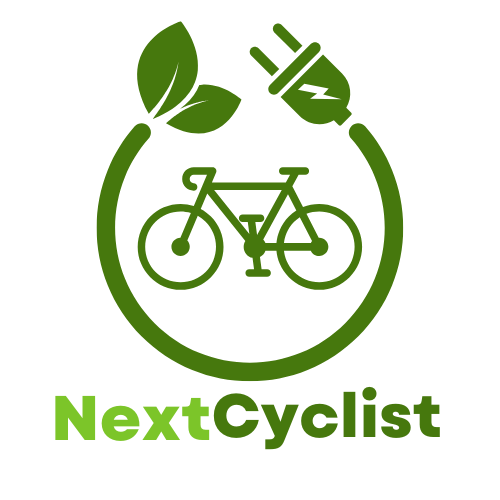A 48V 1000W battery can power an electric motor at a maximum speed determined by various factors, including weight, terrain, and efficiency of the vehicle. Typically, with 1000W, you can achieve speeds of up to 30 to 35 mph (48 to 56 km/h) under optimal conditions. Adjustments in weight or terrain may reduce the speed.
Introduction
Are you itching to know just how fast a 48V 1000W battery can take your ride? You’re not alone! Many e-bike enthusiasts wrestle with this very question, especially when planning their next adventure. The performance of your electric bike largely hinges on the battery’s power, affecting speed, range, and overall ride quality.
Understanding the capabilities of a 48V 1000W battery is crucial; it could mean the difference between a thrilling ride and a lackluster experience. So, why does it matter? Knowing exactly what this powerful battery can do can help you optimize your rides and truly enjoy your time on two wheels.
In this article, we’ll not only answer the question but also explain the factors that influence speed and performance. By the end, you’ll have a clearer picture of how to maximize your e-bike’s potential. Are you ready to elevate your riding experience? Let’s jump in and find out!
TL;DR
- A 48V 1000W battery typically powers e-bikes to speeds between 28 to 35 mph.
- Battery voltage and wattage are key for acceleration; higher voltage usually means faster speeds.
- Weight matters: Lighter setups (+10 to +20% speed) enhance efficiency; avoid unnecessary loads.
- Terrain impacts speed: flat surfaces provide boosts (+15 to +25%), while hills slow you down.
- Controller settings may limit speed; check local laws before adjustments.
- Tire quality and pressure influence performance; keep tires inflated properly for optimal efficiency.
Speed Potential of a 48V 1000W Battery
When it comes to understanding how fast a 48V 1000W battery can take your e-bike, it’s pretty exciting. Typically, you can expect top speeds ranging from 28 to 35 mph, but this depends on several key factors like the bike’s weight, terrain, and the rider’s input.
-
Battery Voltage and Wattage: The voltage and wattage of your battery are crucial. Higher voltage often translates to faster speeds because it allows the motor to deliver more power. So, a 1000W motor paired with a 48V battery is generally capable of impressive acceleration and speed.
-
Weight Matters: Heavier riders or loads can slow the bike down. If you want to hit those higher speeds, keep your setup as light as possible. It’s not just about the bike; gear and accessories can add extra weight, too.
-
Terrain Impact: Riding on flat surfaces will give you a speed boost compared to hilly regions. Uphill climbs can significantly dampen your e-bike’s potential, while downhill can give you a natural speed increase.
- Controller Settings: Your e-bike’s controller settings may also play a role in limiting your speed. Some controllers are programmed to comply with legal regulations, which may restrict speed to keep you safe and in compliance. Adjusting these settings might unlock a bit more speed, but always check local laws first.
If you’re looking to maximize your speed, remember to check out essential maintenance tips like keeping your tires properly inflated for better performance. You might also want to use our e-bike tire pressure calculator to find the optimal pressure.
| Speed Potential Considerations | Impact on Speed (%) |
|---|---|
| Lightweight Setup | +10 to +20 |
| Flat Terrain | +15 to +25 |
| Battery Voltage Increase | +10 to +30 |
| Controller Restrictions | Variable (Check local laws) |
This overview should help you grasp just how much speed potential lies in your 48V 1000W battery setup. Understanding these factors will not only enhance your riding experience but empower you to tackle DIY maintenance with confidence! Don’t forget to check out our full guide to e-bike maintenance for more tips.
Factors Affecting Speed and Performance
When exploring how fast a 48V 1000W battery can power your ebike, several factors play a crucial role in determining its speed and overall performance. Understanding these factors can help you optimize your ride, ensuring a thrilling experience every time you hit the road.
Rider Weight is Crucial
Your body weight significantly influences how quickly your ebike can accelerate. Lighter riders tend to gain speed more efficiently since there’s less mass for the motor to push along. If you’re looking to get maximum performance, consider these tips:
-
- Keep your gear light: Avoid carrying unnecessary items.
-
- Maintain fitness: A well-conditioned body can enhance riding efficiency.
Terrain Type Matters
The kind of terrain you ride on—hills or flat roads—greatly affects your speed. Climbing steep hills requires more power, which can slow you down considerably. Here’s how to adapt:
-
- Choose the right routes: If speed is your goal, opt for flat, smooth surfaces.
-
- Use pedal assist wisely: Increase assistance on inclines to maintain your pace.
Tire Quality and Pressure Impact Speed
The quality and pressure of your tires can significantly influence both acceleration and speed. Properly inflated tires decrease rolling resistance, allowing for improved efficiency. Here’s what you can do:
-
- Regularly check tire pressure: Make it a habit to check your tire pressure before every ride.
-
- Invest in quality tires: Look for tires designed for your specific riding style, as they better suit varying conditions.
By keeping these factors in mind, you can better manage your ebike’s speed and performance, maximizing the potential of your 48V 1000W battery.
| Factor | Impact on Speed | Recommendations |
|---|---|---|
| Rider Weight | Affects acceleration | Keep gear light and maintain fitness |
| Terrain Type | Influences power requirement | Choose flat routes for speed |
| Tire Quality & Pressure | Impacts efficiency | Check pressure regularly and invest in quality tires |
To sum it up, a 48V 1000W battery can significantly enhance your e-bike experience, delivering speeds of 28 to 35 mph depending on factors like rider weight, terrain, and controller settings. Knowing how to optimize these elements allows you to truly enjoy your rides and get the most out of your electric bike. But here’s the kicker — now’s the time to take action! Don’t let uncertainty hold you back. Dive deeper into your e-bike journey by checking out our full guide on e-bike maintenance or use our tire pressure calculator for peak performance. Remember, every ride is a chance to improve, so let’s hit the road with confidence!

